Introduction
The late 1700's found Paris at the center of international culture and France the most dominant power in the world. The French Revolution plunged all of Europe into a crisis. The revolutionaries sought to fundamentally transform France. They promised the people hope and change—liberation from religion, nobility, and monarchies. What they delivered was tyranny, terror, and mob rule. 300,000 souls were murdered.
To see what revolution looks like we must look to France. The French Enlightenment had convinced many people that religion and reason were incompatible because they pull in opposite directions. Whereas, English and Scottish Enlightenment thinkers saw reason and religion pulling in harness toward the same ends; this was the founding philosophy of America.
No wisdom radiated across the Atlantic from the makers of the American Founding Documents to those in charge in France after 1789, whose philosophy can be best summed up in the declaration of Diderot: "Man will not be free until the last king has been strangled with the entrails of the last priest."
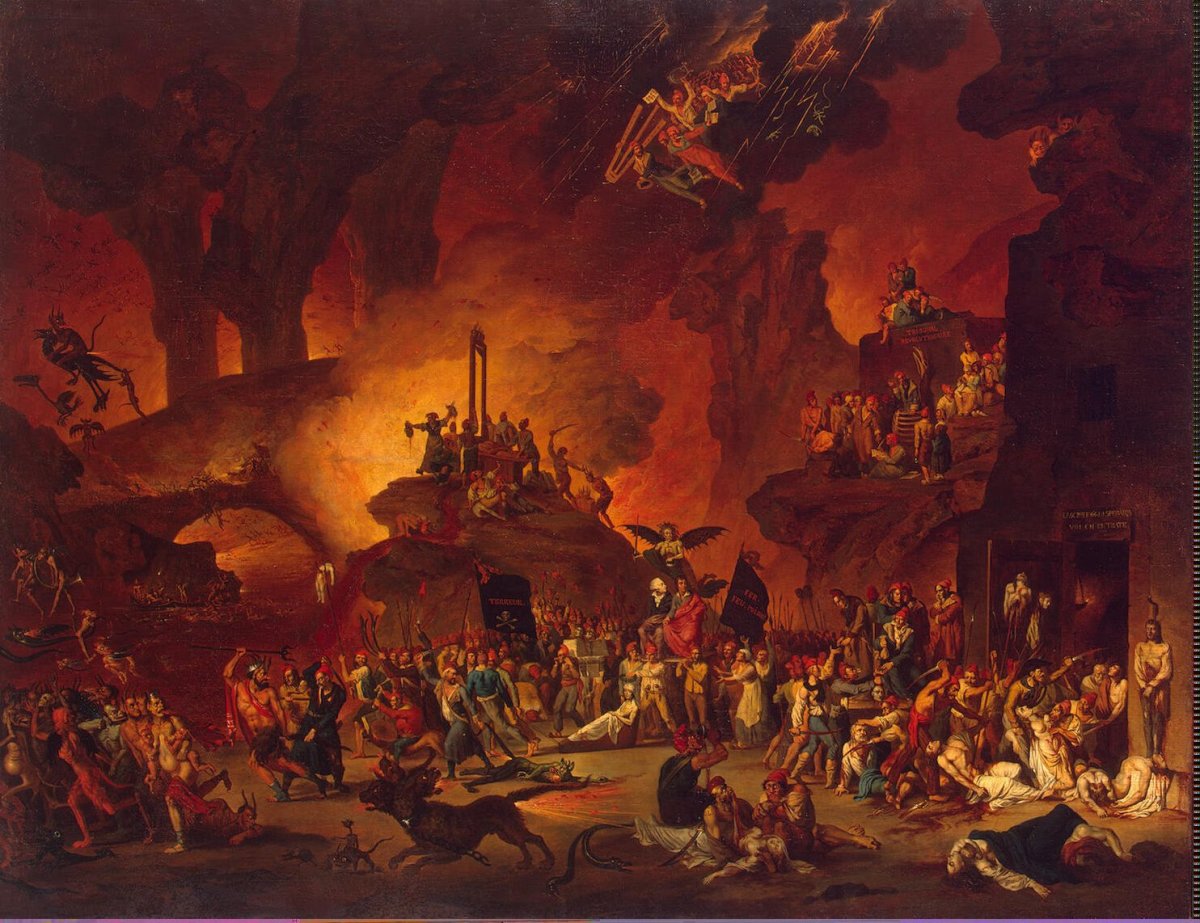
"The Triumph of the Guillotine in Hell" by Nicolas Antoine Taunay (1795)
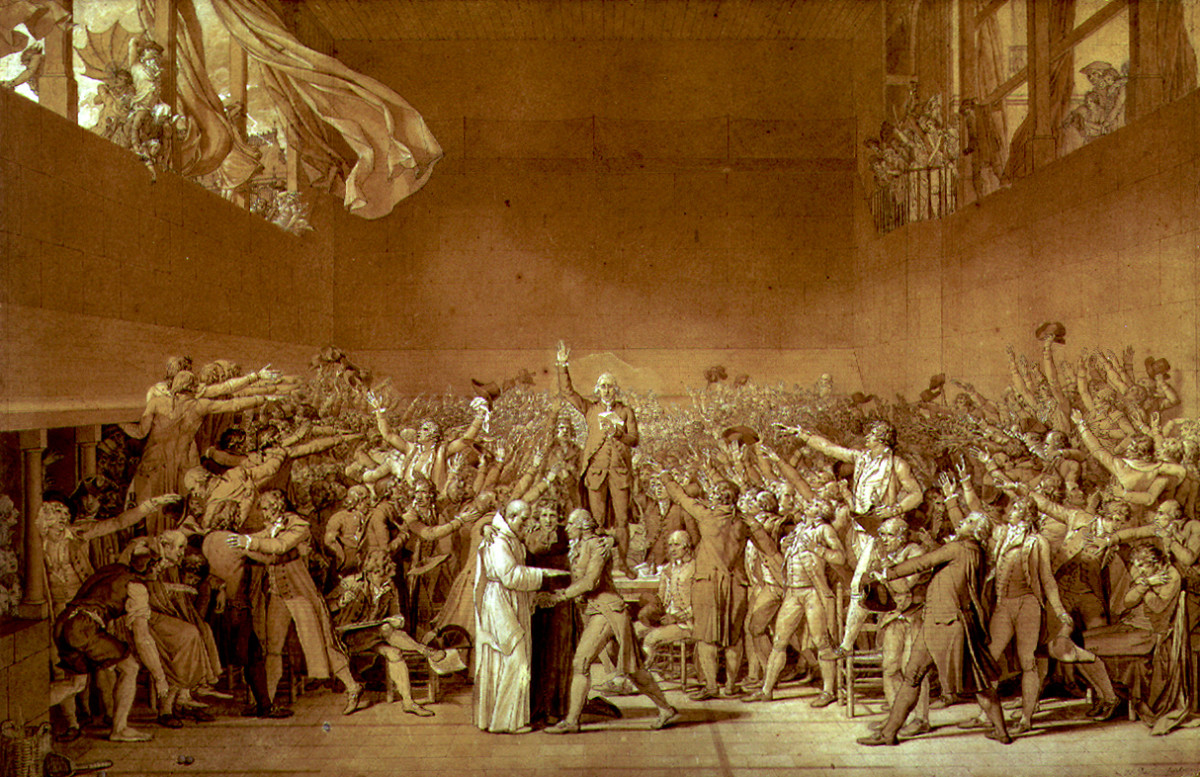
"The Tennis Court Oath" by Jacques-Louis David
The French Revolution
By 1789, France was bankrupt and politically paralyzed. All of Europe buzzed with talk of revolution. Perhaps it came first to France because its rulers were more worn out and despised than others. Poor old bumbling King George III of England was proclaimed a tyrant by the Americans, but he paled in comparison with the monarchs on the Continent. Americans demanded no taxation without representation when no European nation even had a Parliament.
The Ancien Regime was making progress in many ways. It abolished torture and advanced towards free enterprise. King Louis XVI was committed to reform, and many aspects of government saw vast improvements during his reign. Unfortunately, French nobles blocked many of his reforms, and he was the victim of a cyclical agrarian depression in 1787-1789 that led to food shortages.
Antoine Barnave (1763-1791), authored the Jacobin Manifesto in 1788. In January of 1789, Abbe Sieyes—a clergyman who coined the term 'sociology'— followed that up with the pamphlet What is the Third Estate? The 'Third Estate' refers to the common people of France. Abbe Sieyes wrote that they were "Everything. And what has it become until the present time? Nothing. And what does it demand? To become something."
In April of 1789, the 576 members of the Third Estate signed the "Tennis Court Oath," a formal declaration against the French Monarchy. That same month, the fruits of an exceptionally harsh winter came to bear. The lower classes of Paris lacked work, and they lacked food. The bankrupt government was in no position to alleviate their suffering. Angry crowds destroyed several bureaucratic buildings. In response, French soldiers killed 300 citizens in an attempt to maintain order.
In June of 1789, the Third Estate declared itself the sole National Assembly. Many nobles and clergymen were initially on their side—not realizing their ultimate fate. Pandemonium ensued. Paris exploded—it became a notorious playground for sexual debauchery with live sex shows enhancing political meetings.
By July, Paris was lost to the king after revolutionaries raided an armory, confiscated 30,000 muskets, and stormed the royal fortress—the Bastille. The successful storming of the Bastille triggered an orgy of attacks on 40,000 jails in France, freeing nearly all criminals in the country to create mayhem. Castles and Abbeys were burned to the ground. Highways were now ruled by bandits. Peasants committed atrocities around the country, attacking clergymen and successful people. Most of the nobility of France fled the country.
Hatred was mounting and spread among the members of the Assembly. They wanted to save the world from ignorance. They wanted to lift up the poor, oppressed, common man by killing any who might outdo him. Yet the men of 1789 backed off their original aim of giving the vote to all as they realized that ignorant and illiterate men and women without property could not be trusted to keep their fingers out of the national till.
The Church of France was enormous and rich. It employed 130,000 clerics. Except for the Capuchins, who were very poor, monks lived comfortable lives like gentlemen with even a month's holiday each year. The revolutionaries all agreed that the monks had to go.
The new regime was broke, so they summarily confiscated the vast holdings of the Church, which they declared State property, and used it to back new paper currency. Eventually, they issued more notes than the value of all the property they had stolen from the Church, which naturally resulted in rampant inflation.
Catholicism was not unpopular in and of itself. At first, it was assumed it would continue as a State Church. But the revolution quickly changed its initial focus on kings and nobles to a revolt against the clergy as a whole and against Christ. Tithes were prohibited by law, and the concept of Christendom was dissolved.
Soon municipalities were being run by anti-clericals with scores to settle. The new Assembly of 1791 was comprised almost completely by Atheists, and it moved quickly to ban monastic vows and destroy monasteries. In 1792, a decree was issued that ordered the deportation of any priest denounced by 20 'active' citizens. One prison massacre saw 3 bishops and 220 priests slaughtered. A new method of execution was invented, drowning priests bound in pairs, dubbed "de-Christianization by immersion." This was the first full frontal attack on Christ since the Roman Empire.
Paris soon swelled with a variety of fashionable superstitions—Gnosticism, Paganism, Pantheism, Freemasonry, Rosicrucianism, and Illuminism. Andre Chenier described the Illumines as "adapting a whole accumulation of ancient superstitions to the ideas of their sect, preaching liberty and equality like Eleusinian or Ephesian mysteries, translating natural law into an occult doctrine and a mythological jargon."
Ideological fanaticism caused the revolution to go wildly off course, ending in a disaster of massacre, bloodshed and ruin. The new rulers of France sought to remove and replace Christianity. They were the forerunners of Karl Marx, the Bolsheviks, and Chairman Mao. Perhaps 40,000 priests fled France; up to 5,000 of them were executed; and another 20,000, including 23 bishops, renounced Christ to save their own skins.
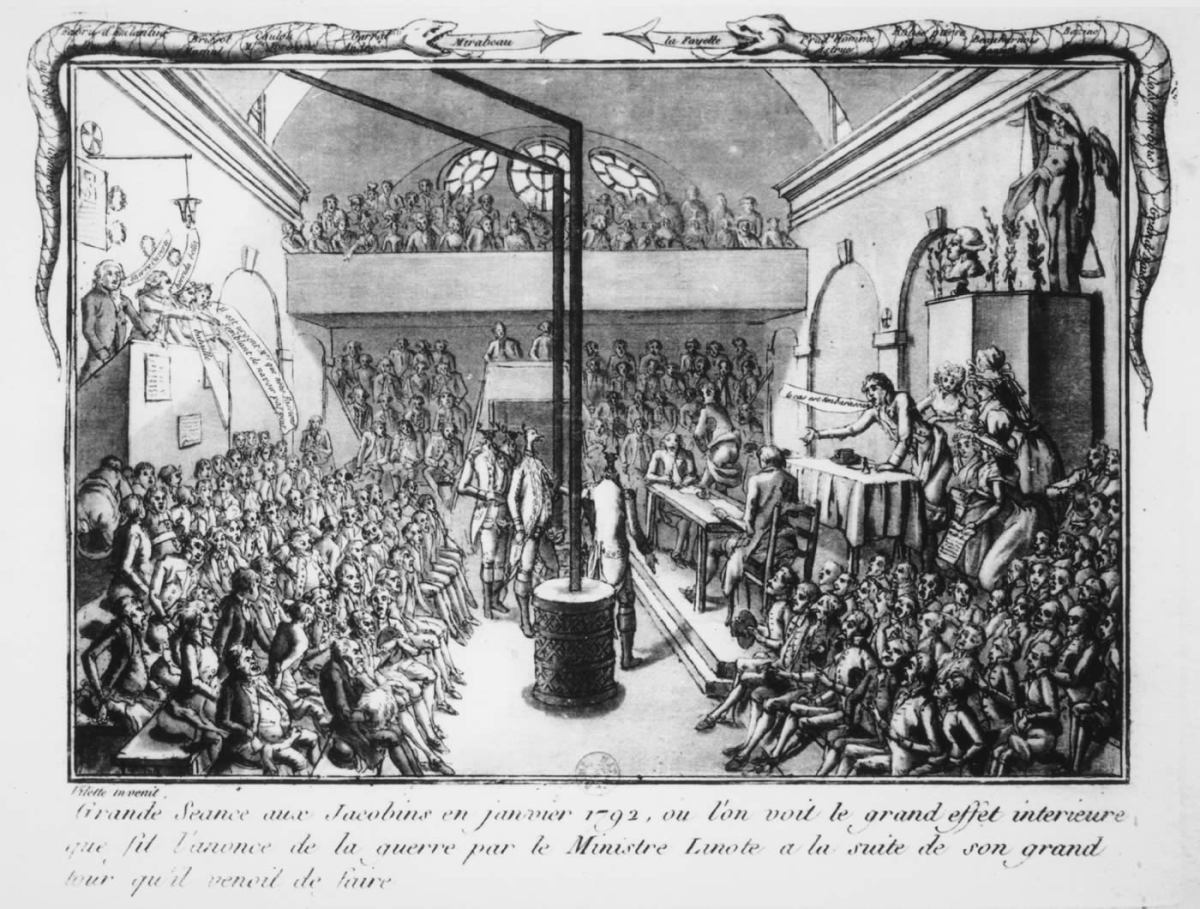
"The Jacobins Hold a Seance"
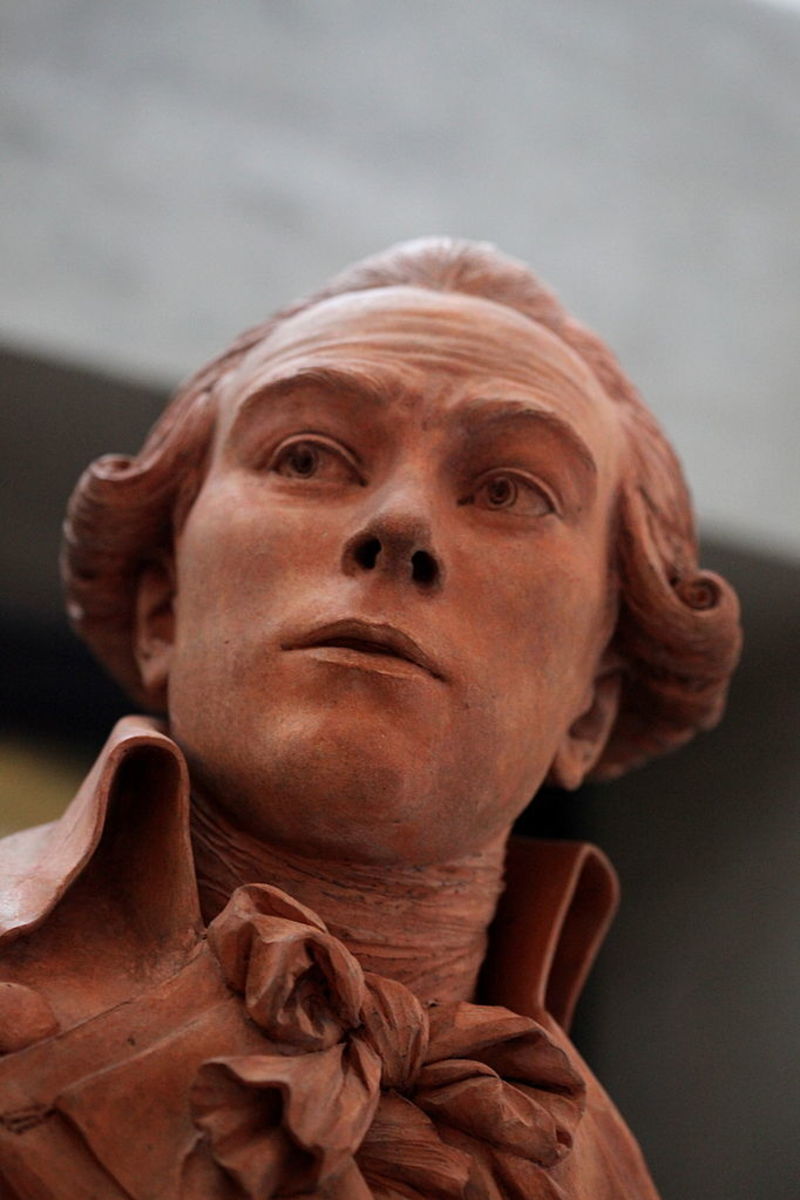
Maximilien Robespierre
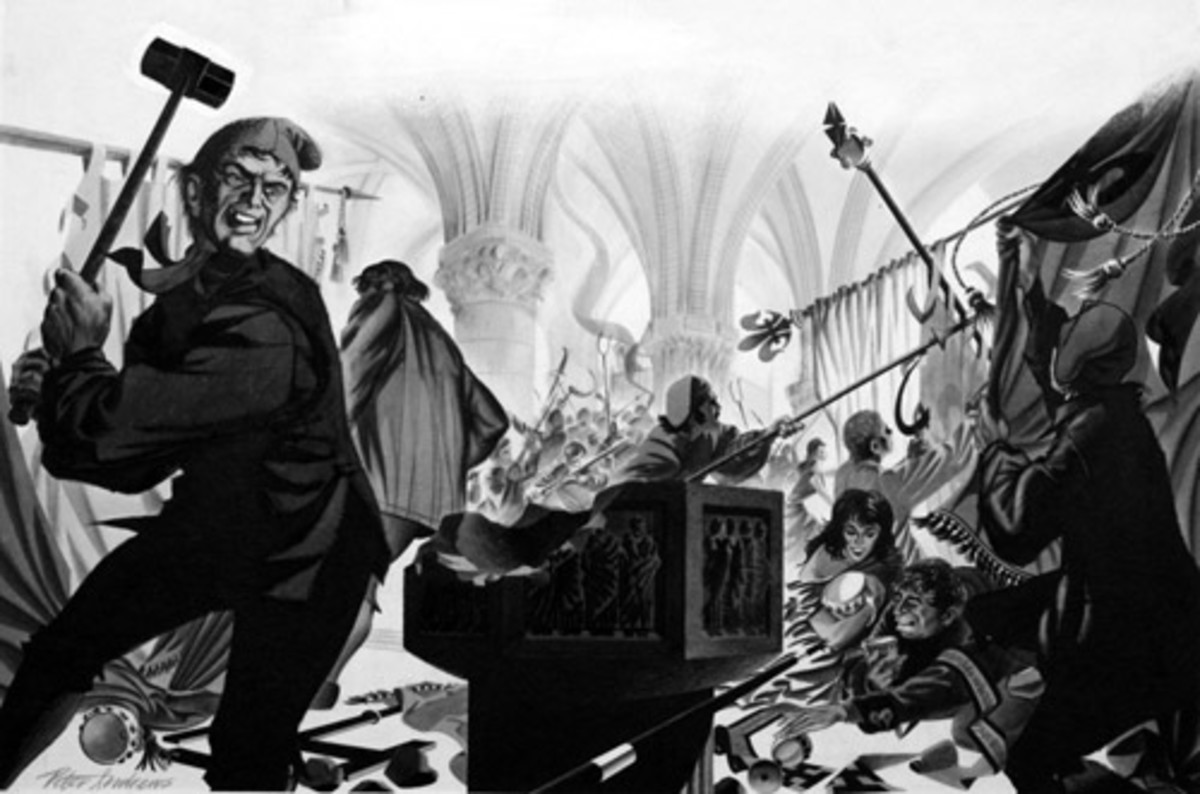
SMASHING UP CHURCHES IN THE FRENCH REVOLUTION
The Jacobins
The French Revolution accelerated and became increasingly radical until eventually all of the previous political and social order had been swept away. The new rulers of France, the National Convention, got busy, passing 11,250 laws in three years. In 1791, the First French Constitution was written, which includes, as its preamble, The Declaration of the Rights of Man.
By this time, the original moderate revolutionaries had been cast aside by radical revolutionaries—as nearly always happen in such movements. This allowed the extremist Jacobins under Robespierre to seize power.
The Jacobins abolished the monarchy altogether; stormed the royal palaces; massacred the King's Swiss Guard; imprisoned the King and his family. There were only 3,000 Jacobins in the beginning, but they were able to take absolute power over twenty-five million people.
Maximilien Robespierre (1758-1794) was a severe man. To the Paris mob he was a hero because he preached the redistribution of wealth. But to any who opposed him he was the devil incarnate. His right-hand-man, Antoine Saint-Just, became known as 'the Archangel of the Terror.'
The Jacobins were militant atheists and all were either lawyers or journalists. Among them were the world's first communists, socialists, and feminists. Their support came from gullible peasants. The Jacobins began by executing their rivals, but having run out of them, they began to kill each other.
In 1792, the French revolutionists made a bold attempt at disorienting the citizenry by abolishing the calendar. After all, the calendar throughout Europe then—and the world today—is based on the Birth of Jesus Christ. We still number our years according to when Christ was born. That is why Atheists in our time work without ceasing to abolish B.C. and A.D., to be replaced not by new numbers but by B.C.E. and C.E. to disavow the Savior of Humanity.
The Jacobins abolished Sundays and seven-day weeks—the week being the only period of time on the calendar that is not related to lunar or solar rotations but only based on a decree by God Himself. Therefore, the godless Jacobins created ten-day weeks.
It was at this time, that many of the peasants who had helped the Jacobins seize power changed their minds and turned against them. The realization crept over them that these people were far worse than their predecessors. These people were the servants of Satan.
The Jacobins responded to these murmurings by sending armed gangs on tour through the French countryside to destroy all churches and press the sons of Catholics into military service, where they would be 'reeducated.' Thus an Atheist government would force Christian youth to die for it, while the sons of atheists were exempt from military service.
Once Atheism took hold in the minds and hearts of the revolutionaries, the usual violence burst forth. The Church was disestablished, public life de-Christianized, and new secular cults invented. People no longer saw their neighbors as Images of God with eternal souls, but instead as mere animals—such as animals which are routinely slaughtered for the "good" of the community—human bestiality felt no restraint.
Mob rule, riots, and lynchings became commonplace. Heads of formerly successful people were paraded around on pikes by their executioners. Random assaults were made on nobles and priests, and the theft or destruction of their property became routine occurrences. Massacres, slaughters, and assassinations were a daily part of life.
Then came the 'Reign of Terror'—deliberate government policy to not only destroy Christians, but to create an atmosphere of fear so as to squelch all dissent. Tens of thousands of innocent people were fed to the guillotine. The crowded tumbrels carted the condemned through hate-filled streets. People took to spying on and informing on their long-time friends and neighbors.
The men who gained power did not have mature political talent. Two distinct types of ability are needed to govern well—political skill and a grasp of good administration. Political skill is sensing what can be done and how to move others to want it. Perhaps one in twenty men has this ability, but even then most candidates are incapable of administration, which is to keep order when the world tends to disorder.
The petty minds that filled the three successive French assemblies were ill-equipped for the task. They were articulate and great at politicking but unable to resolve great issues or deal with the pressure of emergencies. They wrote and delivered endless speeches and held countless debates. But their product is abstract, diffuse strings of generalities aimed at applause but vague on details except for denouncing their rivals as traitors. They saw stability as treasonous to equality and liberty. The revolutionaries planned to take children away from their parents so that they could be indoctrinated by the State.
The idea emerged of equality as communism imposed by violence, terror and dictatorship. Robespierre led the first efficient police state with agents in the countryside viciously purging thousands of men suspected of being against some part of his plans along with their wives and children. The successful members of society had to flee the country in waves. Still the roster of those beheaded was distinguished, including the chemist Lavoisier and the poet Chenier.
The new regime promoted a Cult of Reason, with a visible goddess who was actually a half-naked whore enthroned on the altar of Notre Dame Cathedral. Robespierre instituted something he called "Worship of the Supreme Being," by which he meant the worship of Satan.
Also witnessed here is the first appearance of a new archetype: the Jewish revolutionary. But though Jews were involved they were also targeted, especially for their religion. Voltaire said of Jews: "They are a totally ignorant nation who for many years has combined contemptible miserliness and the most revolting superstition with a violent hatred of all those nations which have tolerated them." Diderot added that "The Jews bore all the defects peculiar to an ignorant and superstitious nation." The prominent Atheist revolutionary Baron d'Holbach went further, writing that "The Jews are the enemies of the human race."
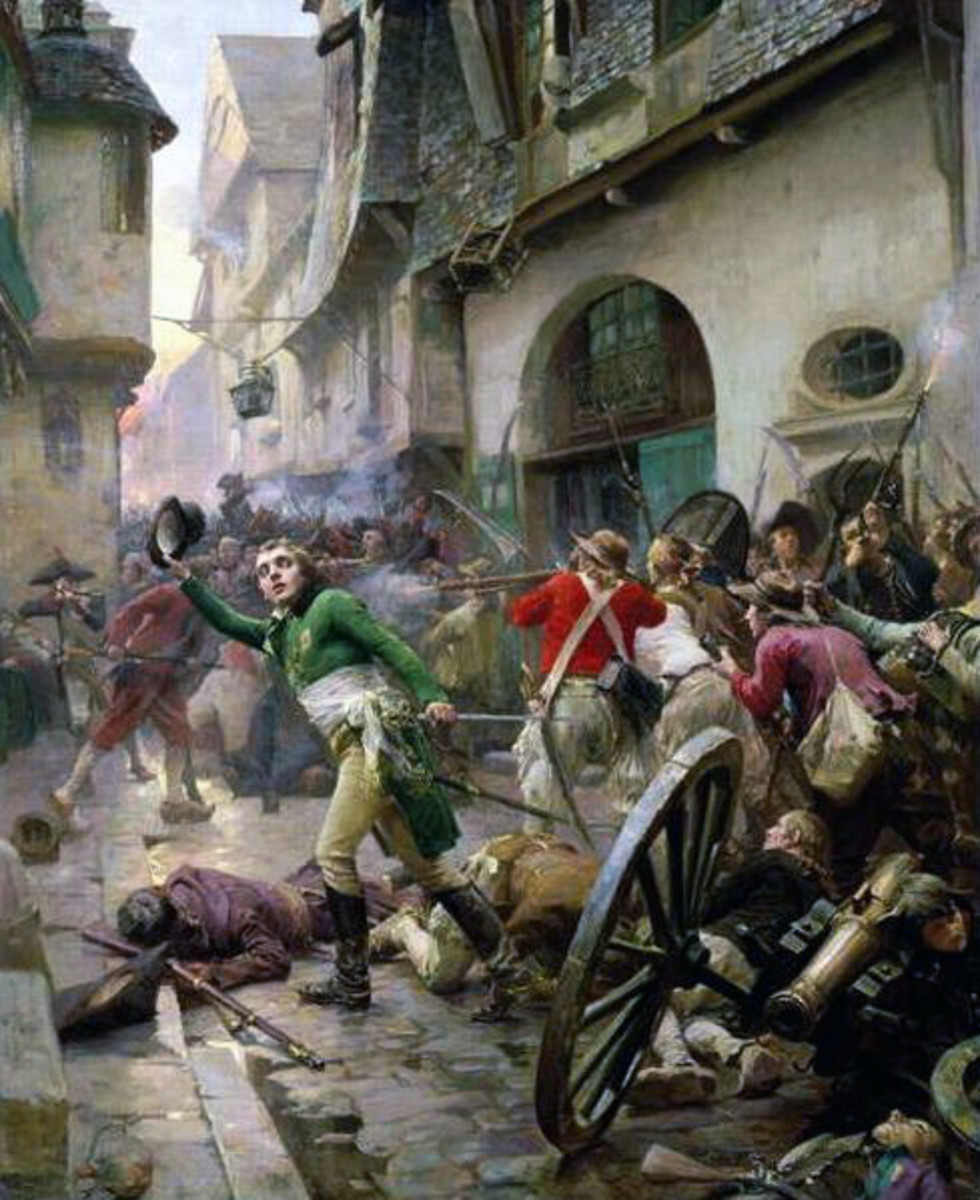
The Vendee Uprising
The Vendee Uprising
Christians from the Vendee region—a "Catholic Army of Saints"—rose up against the Atheist government armed with only pitchforks and scythes. What ensued was a civil war of three years that included 21 pitched battles. The Christians actually won about five of these fights.
In 1793, 30,000 armed men, followed by several hundred thousand supporters of all ages, went on a trek toward Normandy. They had been deliberately fed misinformation that the British would be there to help them. Upon arriving at the port of Granville and realizing they had been deceived, they decided to go home. But home was 120 miles away, and by now it was winter. The men were armed, but they lacked warm clothes and food.
Soon enough, the Vendees were attacked. 15,000 died in the streets of Le Mans. They were hunted, robbed, and raped by government forces. Two days before Christmas, the Vendees were trapped near Nantes and genocide was employed. The man who crushed them, General Westermann, wrote to the government:
"According to your orders, I have trampled their children beneath our horses' feet; I have massacred their women . . . I do not have a single prisoner . . . I have exterminated them all. The roads are sown with corpses. . . . Christians are arriving all the time to surrender, and we are shooting them non-stop . . . Mercy is not a revolutionary sentiment."
The Vendee region from whence came these Christians was then fell upon by revolutionary troops in 1794. Tens of thousands were shot, guillotined, burned in their barns and in their churches, starved to death in prison, or drowned. The officers of the Atheist government had too many to kill and not enough ammunition. So they took to loading large ships with Christians at night; sinking the ships; and refloating them in the morning to start the 'process' again.
Revolutionary propaganda described the Christians to Parisians as ignorant, superstitious, peasants controlled by evil priests. In fact, in any other European country their devotion to God would have been widely admired. Their religion had been publicly mocked by the revolutionaries; and they had been publicly humiliated and subject to repeated physical assaults. Napoleon would later call these martyrs "giants."
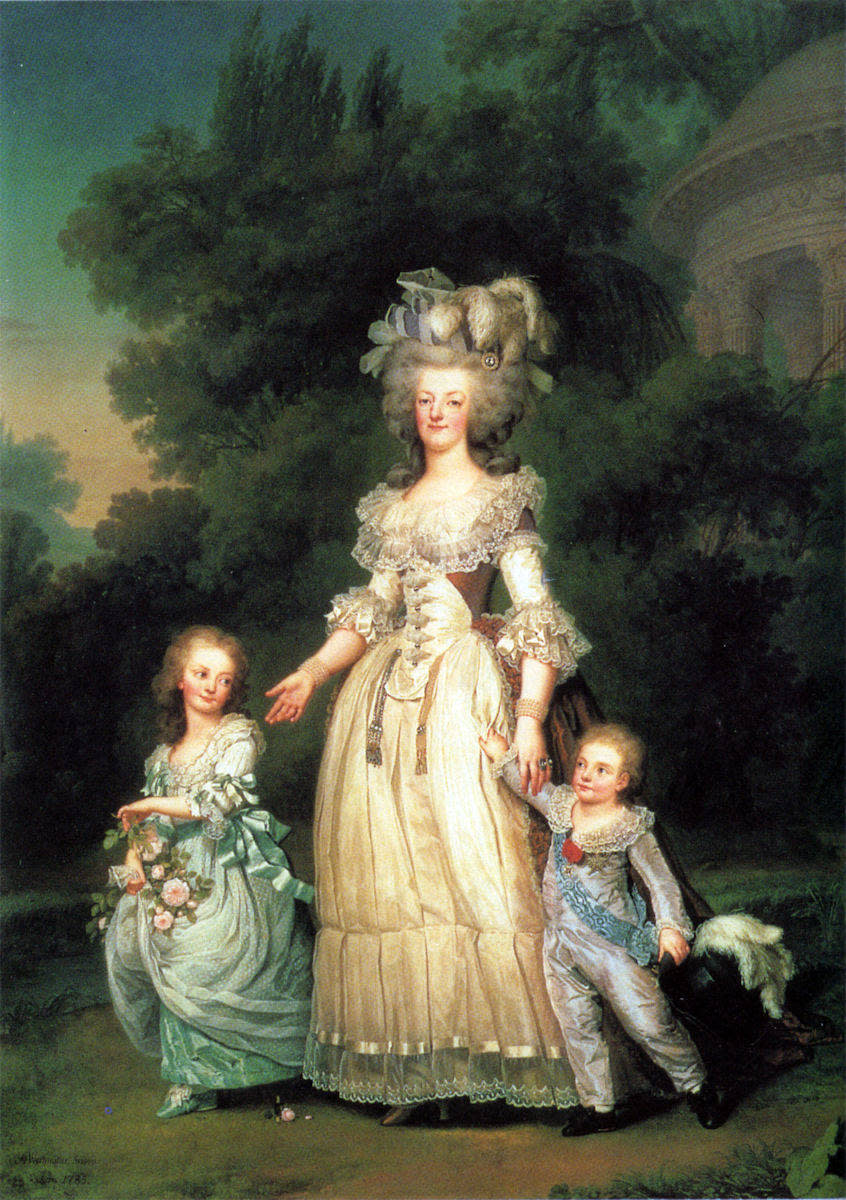
Queen Marie Antoinette with two of her three children in 1785
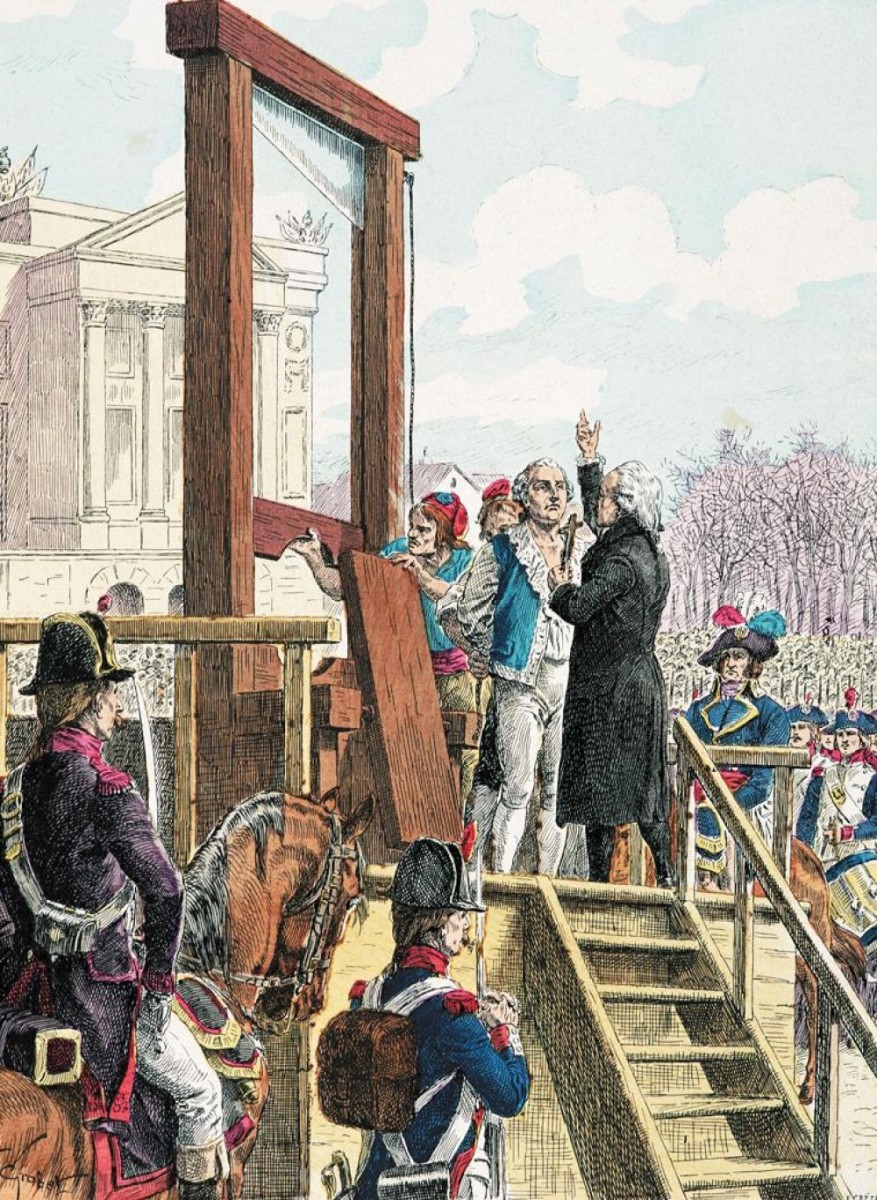
The Execution of King Louis XVI
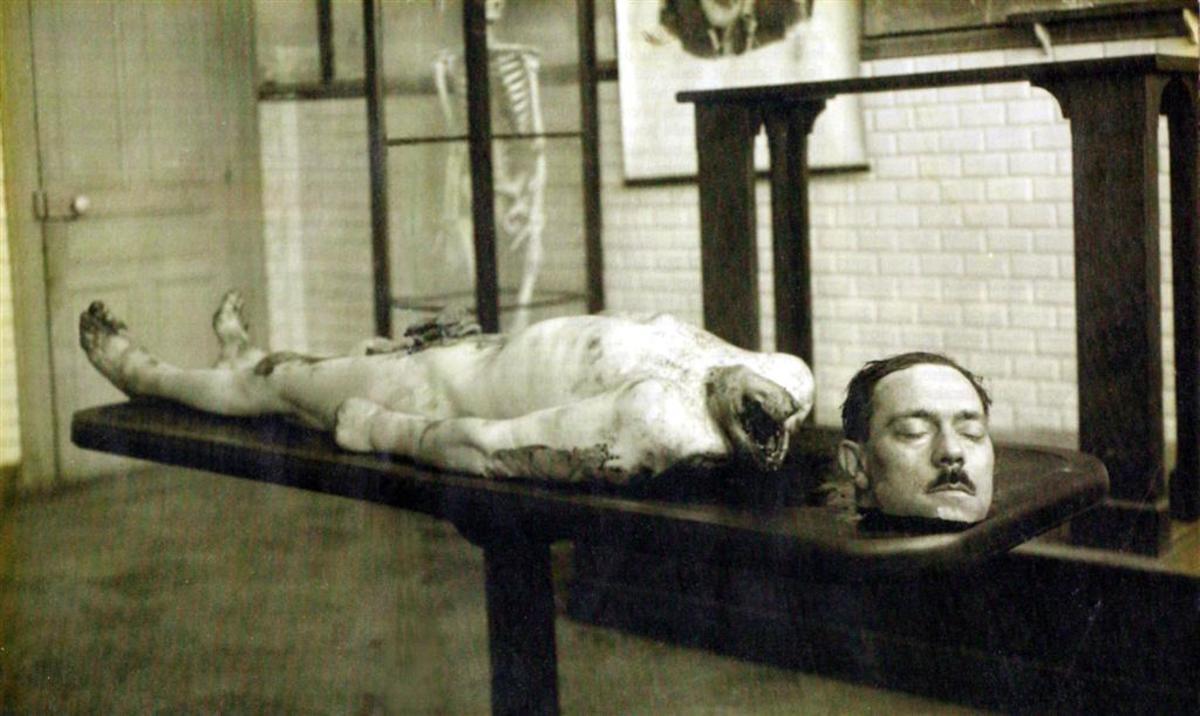
ACTUAL PHOTOGRAPH OF A GUILLOTINE VICTIM
Cause and Effect in the French Revolution
The French Revolution soon began to kill its own progenitors. More and more people were executed including Robespierre himself in 1794. King Louis XVI tried to escape the slaughter by fleeing to Germany, but he was caught at the border and executed along with his Queen, Marie Antoinette.
Dr Josephe-Ignace Guillotin did not invent the guillotine. It was invented by his friend Antoine Louis. Dr Guillotin was the simply the man who persuaded the revolutionaries to use the guillotine, something he promoted as a more humanitarian execution machine. Most people mistakenly believed he had invented it and so he became an eponym.
There were many others who became eponyms during the 18th century and since. The minister of religious affairs for Napoleon was Jean Bigot. Also living at this time was the ultra-patriotic soldier named Nicolas Chauvin. Many plants have been named after their discoverers, such as Begonia, Dahlia, Fuchsia, and Magnolia.
The unit for electric current was named after Andre Ampere. Ohm, Volt, and Watt are all eponymous names, as are Cardigan, Diesel, and Shrapnel. Pants and panties are named after Pantaleone de' Bisognosi; the sandwich after the 4th Earl of Sandwich; baroque after Federigo Barocci; hooligans after Patrick Houlihan; and leotards after Jules Leotard. From the beginning, revolutionaries, communists, and socialists adopted the color red for their flags and banners. Since Roman times the red flag had signaled war and stood for the blood to be spilled in the cause.
"True Blue" was traditionally the color of conservatives, such as Spanish aristocrats or British Tories. I find it fascinating—though hardly noticed by many—that the Liberal Main Stream Media of America quietly renamed conservative states "red" and liberal states "blue." This was done in the late 1990s to dissociate the New Left from the color waved by their ideological comrades. Ironically, those comrades were responsible for the deaths of a hundred million human beings in the 20th century.
Equality is a simple idea in arithmetic that is easily grasped. In a society it is complex and elusive. The idea comes from the fact that human beings are equal before God at Judgment Day. Thinkers who argue from the state of nature find it easy to say that all men are born free and equal, but that is only because in that imagined state there are no standards to measure people by and at birth no talents to compare. Equality before the law means the same procedures for like cases.
But there has never on earth been equality in business, politics, or social life. Many brilliant minds have argued against this truth. What does equality mean? There is no measure by which human beings are equal. If, as it does, merit and ability produce unequal results, is it iniquitous?
The radical revolutionaries wanted to war against nature by creating a forced equality in which all people would have "equality of enjoyments," which they called social justice, and by which they meant equal wages for all, from the street sweeper to the surgeon.
The difference in wages in a free market economy is, of course, the difference in ability from scarce skills to common skills. More people will pay, and will pay far more of their money, to hear Beyonce sing than to hear me sing. More will pay more to see Albert Pujols play baseball than to see me play. The more rare the ability, the more it is worth to the world. Some are more equal than others.
The French Revolution did not achieve any of the significant reformist objectives of 1789. The Jacobins were almost immediately forced to impose economic paternalism. Worse, it inaugurated an era where violence determined the direction of the state more than anything else. You need power to take power, argues historian Simon Schama, and this accounts for much of the horror of the period.
The revolution was not a movement of 'the people' but of a small elite who cared little for the proletariat despite their pronouncements. They certainly used them when necessary—not out of altruism but to achieve their aims. French humankind was proved ready and even eager to send neighbors and associates to the guillotine.
It was not until 1804 that France found stability. It found it in the cult of personality constructed around General Napoleon Bonaparte. All the people came together with dreams of empire and world conquest.
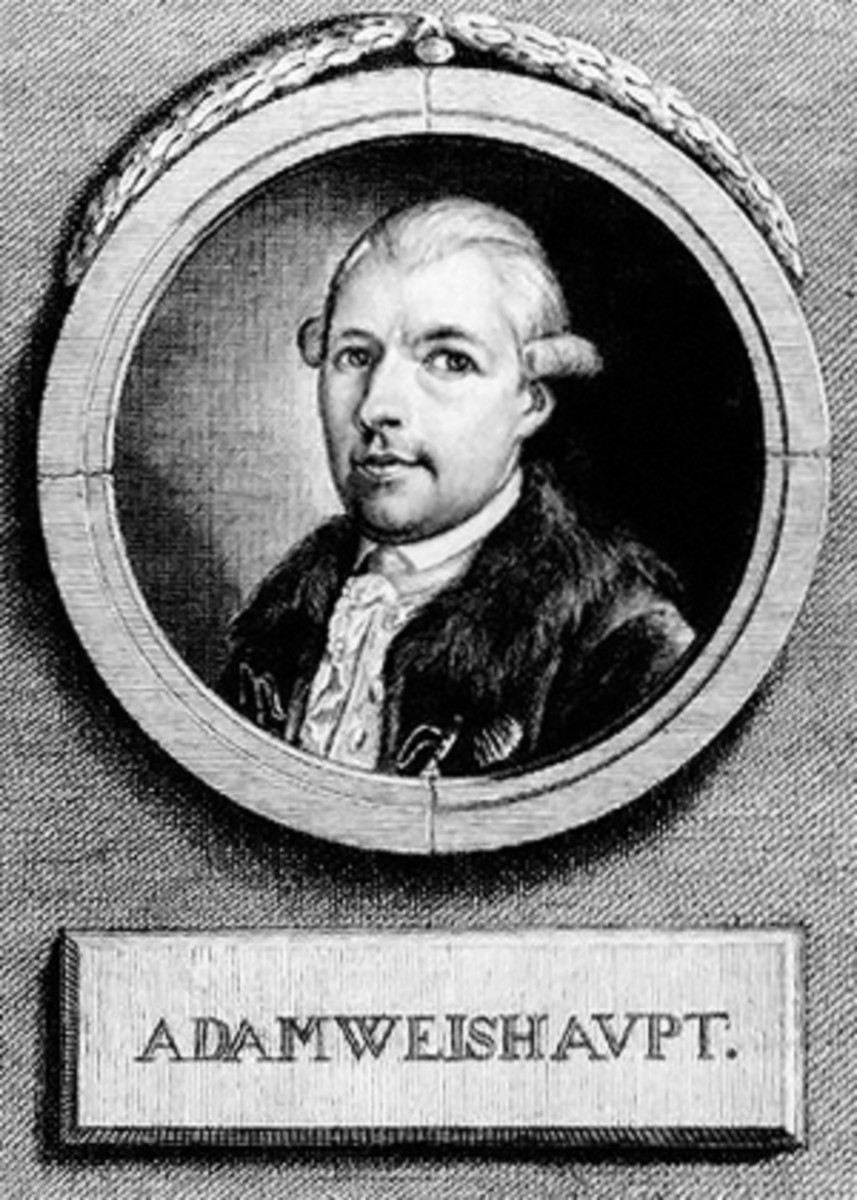
ADAM WEISHAUPT, THE FOUNDER OF THE ILLUMINATI
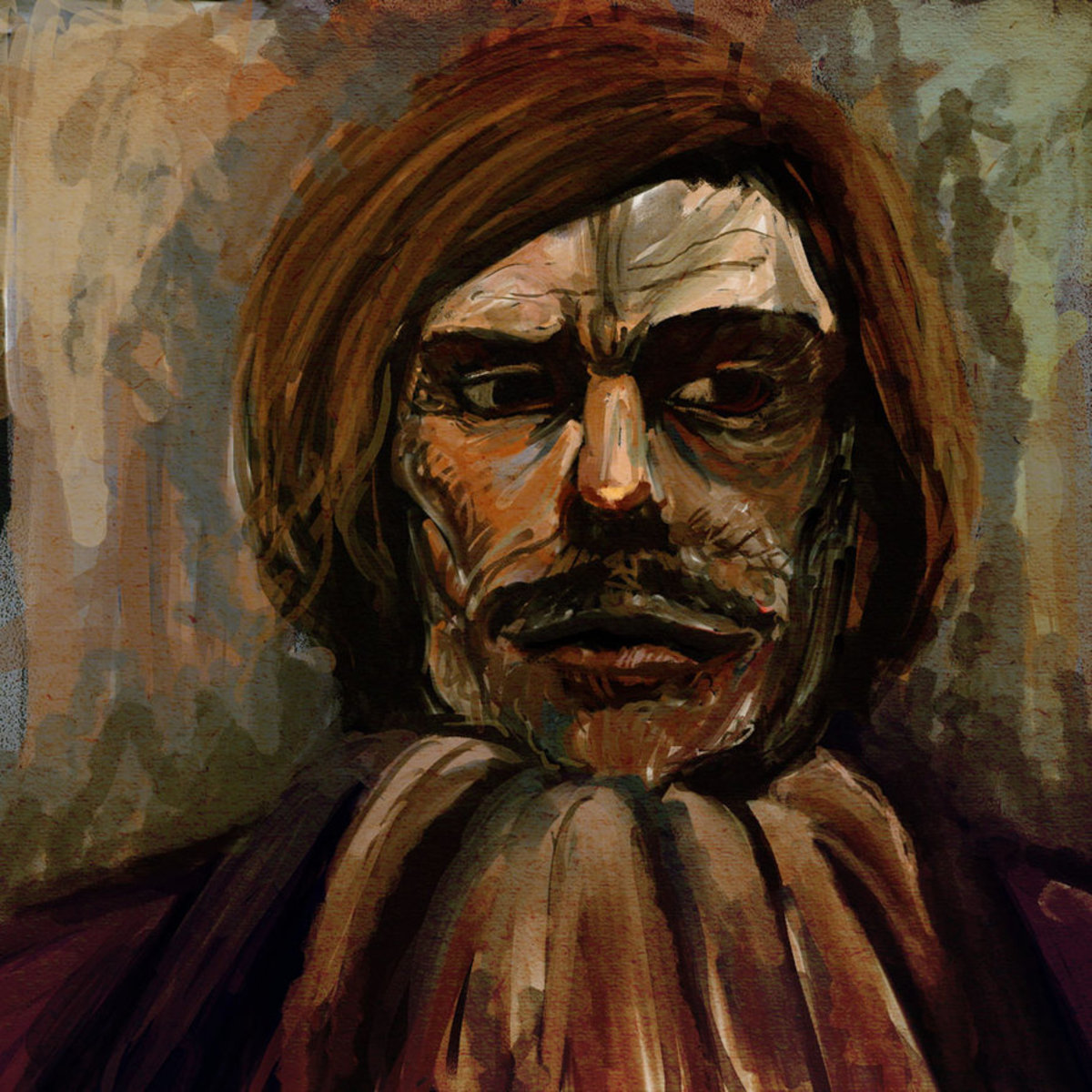
"Cagliostro" by Gold-Copper
The Illuminati
It is possible that the French Revolution was deliberately launched by the 'Illuminati.' In France, the Illuminati operated as 'The French Revolutionary Club,' which held its meetings at the Hall of the Jacobins Convent. It is from the very name of this convent that the hard core revolutionists began to be called 'Jacobins.'
The secret society entitled the 'Order of the Illuminati' was founded in Bavaria, southern Germany, by a law professor named Adam Weishaupt. He was a Jew, a Mason, and an Occultist (Satanist). Weishaupt listed the goals of the Illuminati: Abolition of monarchies and all ordered governments; Abolition of private property and inheritances; Abolition of patriotism and nationalism; Abolition of family life and the institution of marriage; Establishment of communal education of children; Abolition of all religion. Anacharsis Clootz, the Satanist who called himself the “Orator of Mankind” and was the self-declared “Personal Enemy of Jesus Christ,” was in the Illuminati. Like all 'Illumines,' Clootz was a proponent of a world state, and he imagined the institutions of the world state along the lines established by the French Revolution.
The idea was to first implement Atheism and Communism in France. Satanism took hold complete with sex orgies right out in the street, public butchering of Christians, mass murder of priests, desecration of cemeteries, and even some cannibalism. Prostitutes were enthroned on altars of churches as goddesses called 'Eroterion' at 'Feasts of Reason'—modeled on Adam Weishaupt's plan to honor a demonic 'goddess of love.' Illuminists from around Europe came to join in the fun—to participate in the orgies and witness the bloodshed. Cagliostro was an occultist, magician, forge, and swindler who was initiated into Illuminati in 1783. He was entrusted with the mission of disseminating radical ideas across Europe to prepare the ground for the French Revolution. At the end of his tour he went to France and became a Jacobin.
At the Grand Masonic Congress in 1785, Cagliostro received a new directive to prepare for revolution. In a letter he wrote in 1787, he predicted that the Bastille would be stormed, the Church and monarchy would be abolished, and a new religion based on the principles of reason would be imposed. His first order of business was to spark the French Revolution by setting in motion the 'Affair of the Necklace' that turned the French masses against Marie Antoinette. The Queen was the victim of this conspiracy, which was devised to give the impression that she had a love affair with a Cardinal. Among the people, this irreparably dented the reputations of both the Church and the Monarchy.
The Jacobins manipulated the grain market to create the food shortage that started the revolution. The Duke of Orleans—who was also the Grand Master of the Grand Orient Lodges of the Freemasons and in the Illuminati—was certainly involved. This produced a famine so intense that it brought the nation to the edge of revolt. The Illuminists claimed that their revolution would be for the benefit of the common man, but in reality, the conspirators held up the food supplies and blocked all reforms in the National Assembly to exacerbate the situation—while the common man starved.
Toward the end of 1793, the new revolutionary Republic found itself faced with hundreds of thousands of working men for whom it could not find employment. The revolutionary leaders embarked upon a fearful new project that was to be copied by tyrants ever since—depopulation. The idea was to reduce France's population of twenty-five million down to about half that many, a plan which Robespierre believed "indispensable." Members of the revolutionary committees in charge of the extermination toiled day and night over maps, calculating just how many heads must be sacrificed in each town. In Nantes, 500 children were killed in one butchery.
After four years of destruction, France lay in ruins, reduced to rubble and chaos. Its libraries were burned, its merchants were wiped out, and its industry was decimated. France's economy was in shambles, its trades were destroyed, and unemployment ran rampant. The country's desolation was sickening. And the answer to these problems proposed by Satan was to simply exterminate half the population. George Washington wrote in a letter about this time: "It was not my intention to doubt that, the Doctrines of the Illuminati, and principles of Jacobinism had not spread in the United States. On the contrary, no one is more truly satisfied of this fact than I am."
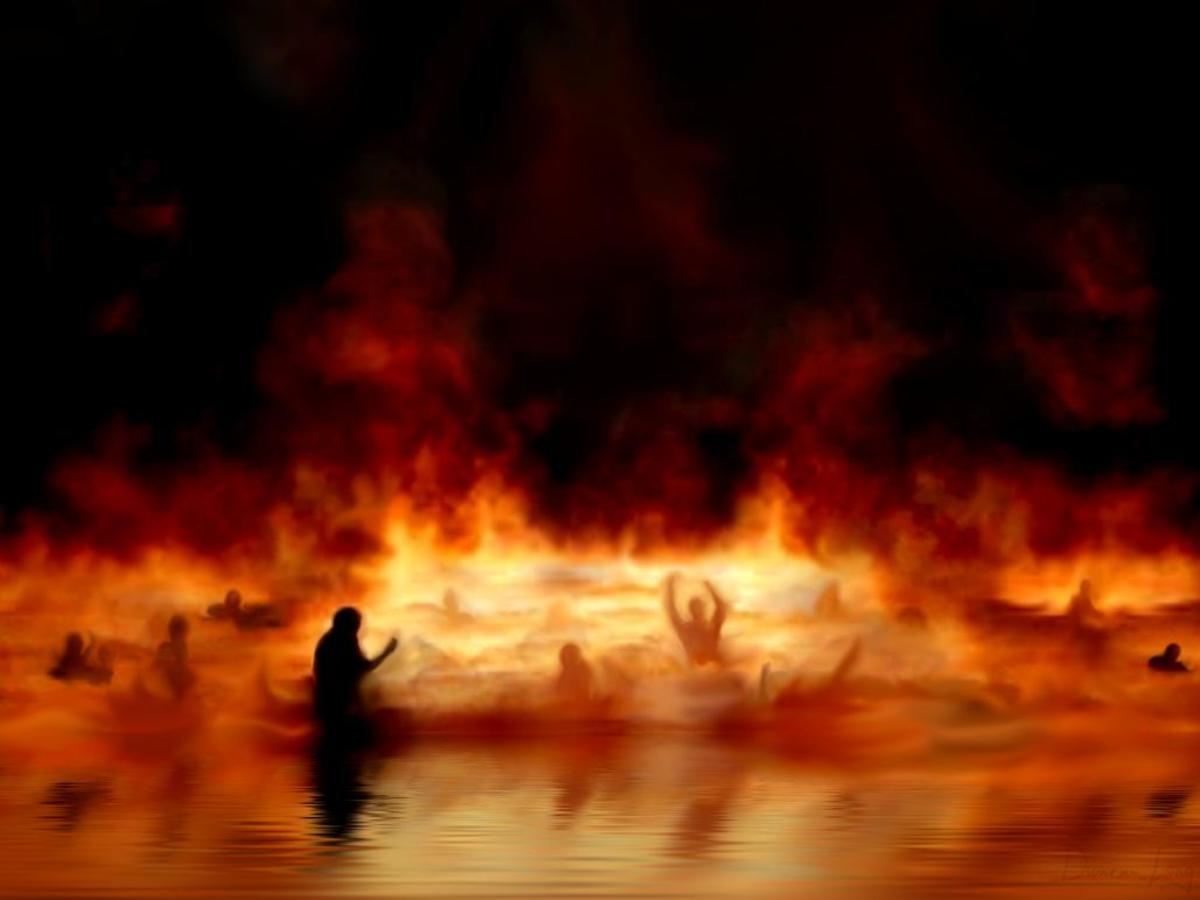
CONCLUSION
The people of France chose the darkness rather than the light. The nation was therefore to reap the results of this course. The restraint of God's Spirit was removed from a people who despised His grace. Evil was permitted to come to full maturity. And the entire world stood witness to the fruit of willful rejection of the light.
French atheism denied the claims of the living God and a spirit of unbelief and defiance took reign. The corruption as usual made itself manifest in the licentiousness that became the signature characteristic of the nation.
In 1793, "The world for the first time, heard an assembly of men, born and educated in civilization, and assuming the right to govern one of the finest nations of the European nations, uplift their voices to deny the most solemn truth which man's soul receives, and renounce unanimously the belief and worship of a Deity." Sir Walter Scott
France lifted its hand in open rebellion against the Author of the universe and became the first state in world history to issue a decree through its Legislative Assembly that pronounced there is no God. A state of moral debasement followed.
One of the first moves was to reduce the union of marriage from what it is—the most sacred engagement which human beings can form and the permanence of which leads most strongly to the consolidation of a society—to a mere civil contract of a transitory nature, which any may cast loose at pleasure. Whatever was graceful and venerable in domestic life was to be destroyed, but the focus was on the degradation of marriage.
Jesus Christ was declared to be an imposter. The French infidels rallying cry was "Crush the Wretch," meaning Christ. Blasphemy and abominable wickedness, cruelty and vice, were now on full display. The worship of God was abolished by the National Assembly. Bibles were collected and publicly burned. Baptism and Communion were expressly banned. The only religious worship allowed was worship of the State, in which was encouraged revelry and blasphemy.
When the restraints of God were cast aside, it was found that the laws of man were inadequate to hold in check the powerful tides of human passion. Peace and happiness were banished from the homes and hearts of men. No one was secure because whoever triumphed today might be suspected and condemned tomorrow. Lust and violence held undisputed sway.
The cities were filled with scenes of horror and terrible crimes. Spies lurked on every corner. The guillotine worked long and hard all day long. Gutters ran foaming with blood into the Seine. When the knife of the deadly machine rose and fell too slow for the work of slaughter, long rows of captives were mowed down with grapeshot. Great flocks of crows and kites feasted on naked corpses.
Satan's steadfast purpose is to bring woe and wretchedness upon men, to deface and defile the workmanship of God. By his deceptive arts he blinds the minds of men and leads them to throw back the blame for his work upon God. In France, the Bible was dismissed as a fable, and the people gave themselves up to unbridled iniquity. Wicked men and spirits of darkness exulted in their attainment of the object so long desired—a kingdom free from the restraints of the law of God.







